|
I was recently honored for my twelve years of service to the Temple Beth Elohim community. I was given the opportunity to share a few thoughts, which are found below. I am humbled and profoundly grateful to have been a part of such a significant and exciting chapter of the TBE story, and may we go from strength to strength. “What really matters is that we care about the people we seek to engage. When we genuinely care about people, we will not only welcome them; we will listen to their stories, we will share ours, and we will join together to build a Jewish community that enriches our lives.” Dr. Ron Wolfson’s charge from “Relational Judaism” just begins to scratch the surface. For more than 68 years, the power of relationships have transformed our Temple Beth Elohim family, and for the past 12, have certainly transformed me. The events were great. The trips were epic. The classes were inspiring. But it is within the relationships – the connections made in between – where the holiness dances and thrives. Dr. Wolfson identifies nine levels of relationship, which speak to how my time at TBE has deeply impacted me, and for which I am forever grateful. Bayn adam l’atzmo – between you and yourself: a strong internal Jewish identity, a definition of self that includes “Jewish” as a key factor. From my own formative years as a teen and emerging adult, NFTY, Camp Bauercrest, Hillel and URJ Eisner Camp helped me find and develop pride in my Jewish identity. But it was at Temple Beth Elohim where I learned how I wanted to and could explore the many different components of my Jewish identity.
Bayn adam l’mishpachah – between you and your family. Immediately upon joining the TBE staff and congregation, I expanded my concept of family as I gained and appreciated the addition of many new Jewish mothers and fathers in my life. As a TBE family, we work really hard, and we play even harder. Our caring community is a blessing, and has supported me throughout the many turns of my journey. Bayn adam l’haveiro – between you and your friends. Temple Beth Elohim introduced me and gave me the opportunity to work with and learn from many colleagues and congregants over the years, many of whom I consider to be my teachers and friends. (Hillel was on to something, I guess). Each member of our community, and especially our staff, has had a significant impact on who I am as a person and professional. But I need to specifically thank Rabbi Sisenwine, Rabbi Saphire, Cantor Sufrin, Rabbi Franklin and Rabbi Sherman for the light that they have and continue to provide in my life. And to Alison, Judy, Judy, Nancy, Hannah, Leah and Susan – thank you. And to Henry, Harriet, Mike and Pam – your leadership, love and guidance for our community, along with our amazing lay leaders and volunteers, is what enables it all. We could not have done what we have in the past 12 years without your support, vision and care. My sincere gratitude. Bayn adam l’Yahadut – between you and Jewish living and learning. I had known I wanted to become a Jewish educator and youth professional for many years, but it was Temple Beth Elohim that challenged me to think about how I wanted to continue my learning and exploration of Jewish learning and living for myself, in addition to that which I was helping to provide our youth. Bayn adam l’kehilah – between you and your community, both sacred and secular. There are a lot of beautiful moments, memories, laughs, tears, hugs, fist bumps and smiles that fill 12 years of holy relationships. To have been a small part of the unique and exciting Jewish journeys of our amazing community of teens in BM3T, Havayah and beyond - I am truly blessed to be part of such a kehilah kedoshah (holy community). You can all check that one off on your bingo cards now :) Bayn adam l’am – between you and Jewish peoplehood, wherever Jews are. The roots and wings that TBE has given me and many of my colleagues over the years has had a significant impact not only on our community, but on the broader Jewish community as well. The Rashi School is blessed to have Rabbi Clevenger as part of their community. Rachel Happel has and continues to change the landscape of Jewish experiential education in Greater Boston and beyond. Now Rabbi Sarah Marion is serving her first congregation in Baltimore, and Ariel Milan-Polisar is currently in Israel for her first year at HUC-JIR. And now Laura and I are both blessed to take what we have done and learned from our TBE family to help strengthen the fabric of youth engagement throughout the Boston Jewish community. Bayn adam l’Yisrael – between you and Israel. Through writing curriculum, designing Shabbatonim, attending conferences and speakers, becoming a Birthright Israel Fellow and staffing URJ Kesher trips, TBE pushed me from not having much of a relationship with Israel to think about how Israel could be a significant and meaningful part of my work. Bayn adam l’olam – between you and the whole world. The acts of tikkun olam (repairing the world) that we have done together have forever changed me. From soup kitchens to Songs of Love to homeless shelters to breakfast for backpacks to reading at schools to volunteering with the Special Olympics to community organizing…I can only say thank you for giving me many, many opportunities to join hand in hand and, together, work to repair our fractured world. Bayn adam l’Makom – between you and God: belief or disbelief; either way, a willingness to wrestle with the Devine. This one’s pretty easy. .מַה־נּוֹרָ֖א הַמָּק֣וֹם הַזֶּ֑ה אֵ֣ין זֶ֗ה כִּ֚י אִם־בֵּ֣ית אֱלֹהִ֔ים Mah norah hamakom hazeh, ayn zeh ki im Beit Elohim. 12 years ago, I thought I was simply taking a job. But I soon realized that, in deed, as it is written in our community’s core text from the book of Genesis, “how awe-inspiring is this place! This is none other than a Beit Elohim.” (Genesis 28:17) 12 years. So immensely blessed. And as Rabbi Tarfon teaches us, we do not have to complete the work…but we must not desist from it. .לֹא עָלֶיךָ הַמְּלָאכָה לִגְמוֹר, וְלֹא אַתָּה בֶן חוֹרִין לִבָּטֵל מִמֶּנָּה (Pirke Avot 2:21) As I begin the next chapter in my Jewish journey, I look forward to continuing to connect with our TBE family in new and different ways, both as a congregant and in my role as Associate Director of the North Shore Teen Initiative. I am excited to watch our youth community continue to flourish under the skilled guidance of our team. …and, to think, for me - it all started with a little red book. Thank you. Shabbat Shalom.
2 Comments
Growing up, dress-up was a frequent part of my routine. Trying on different costumes and outfits, along with their connected personalities and attitudes, was exciting and always something new and different. From being a superhero saving a city to assuming the role of an actor in a movie, I loved the feeling of adventure and opportunity that came with putting on that hat, shirt, mask or even going by a different name and story. My friends and I looked forward to these adventures and stories, and our alter egos spent many hours traveling and exploring. 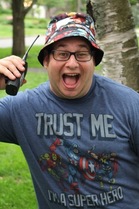 You know that old saying that the more things change, the more they stay the same? Well, it's true. Many years later, I still love stories and adventures. Those who spend any significant amount of time with me know that I am a fan of all things Spider-Man and Batman. I wear many hats (and masks) in the various roles I play in my communities, and I am always down for a good adventure during a road trip or (infrequent) non-scheduled weekend afternoon. But here's the thing: all of these examples are voluntary situations where I can choose how I dress or act. Sometimes, we don't have the ability to decide which mask we're wearing. When do I find the right time to share my story with someone? What parts of my identity do I reveal in an effort to be authentic and true to myself while in relationship with others? The themes of identity and donning/removing clothing are threaded throughout our ancient texts. A biblical narrative beginning with Adam and Eve as they ventured into uncharted territory outside of the Garden of Eden and passed down through the generations, the Scroll of Esther presents a poignant account of donning and removing clothing and tells a story which is largely focused on revealing and concealing. What can we learn from the act of concealing? When are the moments that we let our true colors shine through, and when are the times that we feel like we must hide or alter ourselves? What do the masks and costumes we wear say about ourselves, as well as provide insight into those around us? Baseless hatred (see Brussels) and discrimination (see North Carolina) surrounded our Purim celebrations this week. Many of my colleagues, teachers and friends were faced with an interesting dilemma while attending a policy conference - stay and listen to a leading Presidential candidate who has not been leading by his values, or exit the public space and go study those very values which have been absent from said candidate's campaign. As Uncle Ben told Peter Parker (Spider-Man) as he navigated his abilities and identities, "With great power comes great responsibility." (See also: Pirke Avot 4:1) Hillel spun it (pun intended) a bit differently: "In a place where there are no leaders, strive to be a leader." (Pirke Avot 2:6) When do we know it is our time to jump in? Are there times when we feel compelled to act because of the mask that we wear? What are the obligations that come with the uniform, title, hat or role that we present - quietly or loudly - when interacting with others? How do we represent who we are through our actions? (See also: Batman Begins) This Shabbat, Parashat Tzav encourages us to find the fire that burns within. Scratch that. We are commanded to keep the fire burning. While the text is somewhat vague when it comes to identifying the fire of which it speaks, we can read it a few different ways:
Literal: Priests should take care of the sacrificial alters in the ancient tabernacle and Temple; Poetic: we should be encouraged to develop our passions and turn them into action. At times, we may not be quite sure how we feel about something...or know that something is bothering us, but can't quite put our finger on it. Other times, we are filled with passion and purpose. And while many of us live in between and embrace periodic ambivalence, deep down we know that we must make a decision and do what is right [for us or for the situation]. Those moments and decisions may be planned, or are surprises at other times. While we're not always comfortable, we must challenge ourselves to follow our hearts and guts...even if it means doing so while wearing a mask. After all, it's not always who you are or what you wear, but it's what you do that defines you. Shabbat shalom. 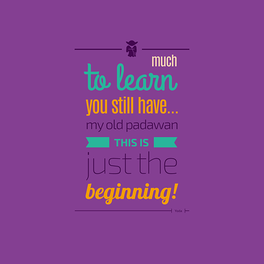 This Shabbat, in Vayigash, we read that Joseph reveals himself to his brothers. Joseph asks them to bring their father back to Egypt, and the family is finally reunited. Feeling all the feels, Joseph says to his brothers, "I am Joseph. Is my father still well?" (Genesis 45:3). His brothers are stunned and say nothing. Joseph persists, saying, "I am your brother Joseph..." (Genesis 45:4). In Vayigash, we witness the moment in which Joseph reveals himself to his brothers. We, the readers, know this man is Joseph. But for his brothers - the sons of Jacob, this is a moment of great surprise. Big family moment and lots of feelings abound. The concept of revelation is a tough one, and the connected emotions and process is heavily dependent on the relationship we have with those with whom we are interacting. Revelation occurs when the true identity of a person is shown to another. This can happen publicly or, as in the case of Joseph and his brothers, in private, and can range from liberating to frightening and everywhere in between. Some revelations are easy and jovial, while others are difficult and deeply personal. This week, I announced to my friends on Facebook that I have never seen any of the Star Wars films. The response, while expected, was overwhelming and hilarious. "I'm shocked." "How is that possible?" "Is this a safe space? Neither have I..." As an educator who loves to connect popular culture and works with adolescents, teenagers and emerging adults, many of my friends and colleagues expressed great disbelief in this revelation. On top of that, many contacted me privately and questioned my sanity for sharing such a dark secret. While humorous and entertaining, it got me thinking. I recognize that this revelation was small potatoes. While I won't be one of the millions of people standing in line and viewing this anticipated new chapter of the Star Wars series, I do appreciate its place and importance in our culture. And I also appreciate that many of my friends wrestle with revelations that are significantly more difficult than mine. There is so much judgement and hatred in our world right now, which often makes it hard for someone to feel completely safe and/or able to share themselves with others. Earlier this week, I was able to spend time at a local Islamic center with a group of teens and parents. During this experience, we shared great conversation, enjoyed a nosh and learned about the vast similarities between our communities and faiths. It was difficult to hear about the baseless hatred and stereotypes which are a norm in their daily lives. Our neighbors and friends do not feel safe to openly express their thoughts, beliefs and identities. We must not stand idly by. We need to speak up for our neighbors, regardless of what similarities we can find. In fact, we are commanded to love our neighbors as we love ourselves. (Leviticus 19) So we need to start doing that. Organizations such as Keshet, Planned Parenthood, HIAS and the Religious Action Center for Reform Judaism are a few examples of many who are fighting for change. As the great Yoda once said (or at least my friends have told me he did), "Fear is the path to the Dark side. Fear leads to anger, anger leads to hate, hate leads to suffering." Every single day, we choose which parts of ourselves to reveal to others through moments of interaction and connection. Let us hold onto the teaching of Hillel and not separate ourselves from the community, but rather to embrace and celebrate our role in it. Let's challenge ourselves to help others and ourselves by making our communities more welcoming, safe and inclusive places where we can feel comfortable celebrating all that we are. Shabbat Shalom! A season is set for everything, a time for every experience under heaven. I just got home from having dinner with friends in their sukkah. A night I look forward to every year, we are able to block out the noise of the busy world around us for just a few moments and enjoy each other's company while surrounded by nature. During the fall holiday of Sukkot, we give thanks for the fall harvest and it is both a commandment and a mitzvah to dwell [in the sukkah]. By definition, dwelling is to live or continue in a given condition or state. Today, ten more people lost their lives to senseless gun violence. Seven additional people were injured. Those people have names and stories. Their journeys now cut short, and their communities left grieving and broken. At what admittedly had become far too routine of a post-tragedy press briefing, President Obama's words lingered. "Thoughts and prayers are not enough. It's not enough...it does nothing to prevent this carnage from being inflicted someplace else in America." We have dwelled in this season long enough. When will it be the time for change? "A time for being born and a time for dying. A time for planting and a time for uprooting the planted; a time for slaying and a time for healing. A time for tearing down and a time for building up; a time for weeping and a time for dancing; a time for throwing stones and a time for gathering stones; a time for embracing and a time for shunning embraces; a time for seeking and a time for losing; a time for keeping and a time for discarding; a time for ripping and a time for sewing; a time for silence and a time for speaking; a time for loving and a time for hating; a time for war and a time for peace." - Ecclesiastes 3:1-8 Sukkot is also known as Z’man Simchateinu (Season of Our Rejoicing), and is the only festival associated with an explicit commandment to rejoice. It also is a time to recognize the change from one season to another - with a favorite reading and song coming from the Book of Ecclesiastes. The s'chach (roof) is to be temporary, covered with loose branches from trees or anything that grows out of the ground, should give shade and yet allow those in the sukkah to see the stars through the roof at night. When will more people look through the metaphorical s'chach and see the baseless hatred and violence in the world around us? This season of senseless violence has overstayed its welcome. There has been too much time spent weeping without dancing. There has been too much time where stones have been thrown without being gathered. There has been far too much ripping, with those rips not being able to be sewn back up. Too many of us have spent time silent, not speaking up. When will this season turn? When will more of us not stand idly by and seek the change we need in our country in the form of revised gun control legislation? Time marches on, seasons change and those numbers continue to climb. 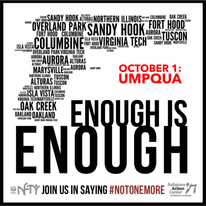 I'm proud to be a Reform Jewish youth professional and educator. Many of my friends, teachers and colleagues strive to create this much needed change in our world, and are on the front lines lobbying and raising their voices. Along with my teens at Temple Beth Elohim, I went to Washington last spring to lobby our officials as part of our participation in the Religious Action Center's L'taken Social Justice Seminar. Our own TBE community has been affected and we have begun to take important steps to create change through community organizing and awareness. NFTY, our Reform Jewish youth movement, has created a campaign for awareness and change, charging us to say #NotOneMore. On June 2, we were #WearingOrange in solidarity on National Gun Violence Awareness Day. We're trying to move to a new season. It just so happens that one of my teachers, Rabbi Jonah Pesner, Senior Vice President of the Union for Reform Judaism and Director of the Religious Action Center of Reform Judaism is joining us for Shabbat at Temple Beth Elohim tomorrow night and will be speaking about the holy work that our community and movement is engaged in. If you're in the area (or online), I hope you'll join me in welcoming Shabbat at TBE and listening to Rabbi Pesner's charge. One of the texts that I try to live by is from Pirke Avot 2:16, which says, "It is not up to you to finish the work, yet you are not free to avoid it." I translate that as even though we might not be able to complete it, we have to get up and contribute to the effort. As we prepare for Shabbat, take some time to ask yourself: what can you do to help us get to a new season? One with more celebration and without gun violence. A season with less mourning and more dancing. Kehn yehi ratzon - may it be God's will. Shabbat shalom.
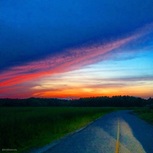 "Are we there yet?" As a Jewish youth professional who spends a fair amount of time travelling with groups of all ages, I've heard this question only a few times. In this week's parashiyot, we catch-up with the Israelites as they near the Promised Land after forty years since leaving Egypt. Generations have passed, and they have matured into a nation ready for the next challenges that lie ahead. They look back, reviewing where they have been, and quickly turn to the future. What are the tasks that lie ahead? What are the plans to move forward as the journey nears completion? At camp, we mark time in different ways. While our daily schedule keeps us moving from activities to meals and everything in between, there are also specific days on our calendars. Just a few examples are: Opening day. Crazy hat day. Shabbat. Rainy day. Superhero day. Trip day. Closing day. Yesterday was that funny period of time in the camp calendar called "Intersession." Two weeks (one session) down. Four (two) to go. We've accomplished so much, and we have more that lies ahead. What better opportunity to take a few minutes to sit, breathe, grab an iced coffee and reflect on all that we've already done this summer. We've come a long way, from where we began. Check it out on our blog >> Summer #2 at URJ 6 Points Sci-Tech Academy blasted off with a great sense of ruach (spirit). Our campers were busy making new friends from 24 different states and 3 countries, getting sweaty from singing and dancing at song session, learning new skills and tools, building a catapult while learning about kinetics, creating music videos, learning how to program in Minecraft, flying rockets and drones, learning about fermentation and food science, working with a doctor to study how our bodies react to exercise and activity...and the list goes on. We've come a long way, from where we began. Wrapping-up another book of Torah, we say "chazak, chazak, v'nitchazek" -- be strong, be strong, and let us be strengthened. We have already built so much this summer as a Sci-Tech community. As we begin Session 2, let us go from strength to strength and continue to build upon this foundation as we explore, innovate, create, discover, connect and find joy as a kehilah kedoshah (holy community). Are we there yet? Yes. We are there, and we will keep going! I'll write more later...but we're about to open the gates for Session 2! The words we say at the beginning of our morning t'filah are quite recognizable as a blessing: 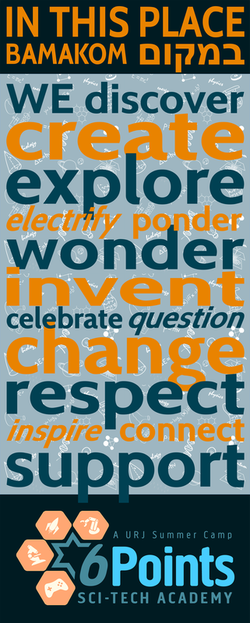 When Balam (wicked sorcerer) was hired by Balak (king of Moab) to curse the Israelites as they passed through his kingdom on their way to Canaan, what actually came out was a blessing. We interpret these words in a myriad of ways, acknowledging the blessing of community and the roles that each unique member plays. Or, maybe focusing on our obligation to be blessings throughout our daily lives. (Genesis 12:2) While we sometimes interchange the words tents and dwellings, tents are temporary shelters that are relocatable, while we know dwellings to be a bit more permanent and sturdy. As we prepared for our second summer at URJ Sci-Tech Academy, I found myself thinking about space a lot. Not only do we approach our use of space throughout our camp season quite intentionally, we also have the task of transforming our beautiful space at Governor's Academy back into our summer home after spending 9 months away - and recreating a space that represents our values and fosters holy community. While I would not go as far as to say that we spend our summer in one gigantic tent, it is quite remarkable to think about the transformation that occurs at both the beginning and end of our summer. Walking onto camp, it still very much looking like a school, and we work together to rebuild what we left last summer. From road signs to posters to room set-ups to supplies and then some, our leadership team and staff does it all. But what exactly goes into our dwelling that makes it one of blessing? As I spent the last few days walking around camp, hanging out with campers and staff and watching our second summer come to life, I've gravitated towards a few answers...  Our Gesher Tzar Meod (Very Narrow Bridge) connects our main campus to where our boys and some of our leadership team lives. We took advantage of this opportunity to name it appropriately, and I believe that it also represents the journey that many of us take as we experience new things and different places. Part of the magic of camp is helping every member of our community stretch their comfort zones and experience new things. As Rabbi Nachman teaches us, the most important thing is not to be afraid as we exist in our world that sometimes looks and feels like a narrow bridge. Also: don't forget to sing while crossing it!
 This summer, we gave our Livnot (Hebrew verb: "to build") period a home with the creation of our Maker Space. With a foundation of design thinking and community building, campers and staff enter this space on camp with the charge to think differently and outside of the box, design, explore, create, build, assess, problem solve and innovate. A new component at Sci-Tech this summer, it is very much still in a beta stage and we are excited to continue to add to and modify what it is and how it helps us enhance our experiences at camp. From inventing to building to creating innovative Shabbat experiences for our camp community, this place on camp is one that we can all learn from. As we prepare for our first Shabbat of the summer as a camp community, my blessings are abundant in this place in which I dwell. Our campers are excited and empowered. Our staff is enthusiastic and innovative. Our community is holy. It's nice to be back home. Shabbat Shalom!
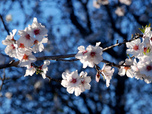 Plague. Rebellion. Tithe. No...I'm not talking about final exams before the proverbial bells sound to signal the beginning of summer break. In this week's parashah, we read the story of Korach (Numbers 16:1-18:32), who leads a rebellion against the leadership of Moses and Aaron. God punishes the rebels, brings a plague on the people, and we see the many challenges of leadership and faith. Following this unrest, the chief of each tribe [of the people of Israel] deposits his staff inside the Tent of Meeting. Aaron's staff brings forth sprouts, produces blossoms, and bears almonds. (17:16-26) He is appointed as Cohen Gadol, high priest. After playing #2 to his brother Moses through their journey, Aaron is recognized for his leadership - an act that is important for both the people as well as himself. As I am packing for camp and many of my friends and colleagues have already begun their staff training at camps across the country, I have been thinking about how we can show kavod (respect) and provide validation for the hard work our staff does throughout the summer. Where do we find our "sprouted almonds" amidst the busy schedules and activities at camp? We find inspiration and gratitude in different places and at varying times. Sometimes it's during an interaction or experience we have with others, and other times we may gain it independently. 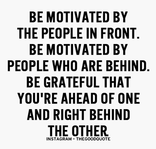 A year ago, URJ 6 Points Sci-Tech Academy was a bunch of thoughts, plans, ideas and intentions. We then went on to create a new holy community - one for which I am extremely grateful to be a part of. While reading this piece of Torah a year ago, I was nervous and excited as I met new people and took on new responsibilities. Fast forward a year, and I am reading it again but with significant pride and knowledge that we will be continuing to add to the Torah and community that we created together. Quite the Shehecheyanu moment, indeed. Along with the socks and bug spray, I am packing a few additional things this year. Gratitude for the talented people I have the opportunity to work with and learn from. Respect for the holy work that we get to do together, and what each one of us brings to the community. Recognition for the gifts and blessings that are abundant on our team. And a renewed sense of excitement and enthusiasm as I look forward to exploring, creating, building and discovering with my 6 Points Sci-Tech family. 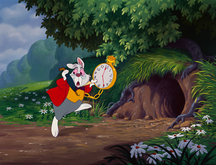 "Life moves pretty fast. If you don't stop and look around once in a while, you could miss it." One of my favorite childhood movies, I am finding Ferris Bueller's words to resonate with where I am and how I'm feeling. We're always running. Moving. En route to the next place, thing or task. When does it stop? I haven't blogged in months. Not because I haven't wanted to or had thoughts I wish I could share, but because I haven't been able to prioritize a frequent opportunity for sitting, thinking and writing. Now that I've typed those words, I'm cringing and questioning why my internal alarm hadn't sounded before now. Wrapping-up another "day off" from work where I had a constant flow of work-related thoughts as I was catching-up on a few things on the personal side of the fence, I came across two articles that are very much connected: The Disease of Being Busy Mindful Moments in a Multitasking World I read the articles. I posted one of them on social media and then I stopped. I read the comments. All of them. Scrolling through dozens of personal stories and connections, I am reminded once again that we are not alone on the journey. And while, at times, we feel that we are, I still wonder why. Why are we caught in this race-to-nowhere culture? Why do I feel bad when I want to schedule a lunch date or coffee with a friend while I know that my to-do list is waiting for me? Why don't we do something about it? Today is Friday. Tonight is Shabbat Vayeira. Just a little bit of drama in this one (!) with Abraham arguing with God, Lot's home is attacked and his wife is turned into a pillar of salt, and there's a great deal of family-related crap to boot. Ultimately, God tests Abraham, instructing him to sacrifice Isaac on Mount Moriah. Skipping over some pretty juicy parts of the story, this summary is only half of what's happening here. So what am I taking from the text this week, in connection to where I currently am? Abraham gets educated on what is right and just. It's not in the lesson, but in the journey that he figures it out. He is confident that there is good among the evil. While we're running around, we don't always see what's happening around us. We don't always hear what we need to be listening to. We don't always take time to appreciate what is not sticking out in front of us. So, maybe, in the coming week, we can try to do the following: Listen a little more carefully. Silence the unnecessary noise for just long enough to discover something new. Find an answer to a question that's been present. Remember that there is good...even if you have to search among the bad. Breathe. Smile. Shabbat Shalom. Kavanah that I wrote for the first Shabbat of Staff Training Week at URJ Eisner Camp in Great Barrington, MA.
All the people that we saw [in the Land] are people of great size...and we looked like grasshoppers to ourselves, and so we must have looked to them. (Numbers 13:32-33) Come with me on a journey back through time. You and I are part of the Israelite people. We have gotten out of Egyptian slavery. We are free. Slowly but surely, we are making our way to the Promised Land of Israel, the land God promised to our ancestors. Through all those years of slavery, we have waited, and now we are about to enter the Land. But, we can't just walk into the Land. Yes, God will lead us, but we will have to fight for it. Moses tells us that we need to know more about the Land before we enter. God tells Moses to send people to spy out the Land, to sense its strength, how fortified the cities are, the nature of the people and armies we would encounter, and to figure out how difficult the battle will be. We all have so many questions. But, God says not just shelach, "send," but shelach-lecha, "send for yourself." Send the spies - for your own benefit, not Mine. It's as if God is saying, "Moses, your people have doubts. So, to be more confident, send people to take a look, to investigate, to learn and prepare. I am not asking for blind faith here; go and look for yourselves. So, Moses sends out spies - not just anyone, but tribal leaders. They complete their task, and then they return and give their report. "It is a good land," they say. "It flows with milk and honey, but the cities are large and fortified, the people are extraordinary fighters and gigantic. They are too powerful for us." We become nervous. How can we do this? We have not finished training yet. What tools do we have to help us? Let's pause and switch story lines for a moment. Much like our text reads, so has been the path for many of us as we came to camp this summer. A new land. Unsure what lies ahead. Many of us have come from taking exams at university or return after working our "real jobs." Some of us are new, exploring the land, meeting the people, learning the culture. We see ourselves as grasshoppers amongst giants. Others are returning home, excited to reunite with old friends and meet new ones, taking on new roles and experiencing camp in new ways. We're not sure what adventures this summer will bring, and if we are prepared for new challenges with which we will face. How often in our own lives do we shy away from challenges? They may be difficult. If we walk around, seeing ourselves as grasshoppers worried about the uncertainty that lies ahead, we will miss out on accomplishing the dreams and hopes we have for ourselves. We must lift our heads up, see the promise that lies ahead, and the excitement of the unknown. We can do great things. Use staff training as an opportunity to become acquainted with the people and places that make camp the special place it is. Take advantage of the time you have to refine your skills (and learn new ones). And this summer: pick your head up. Don't be a grasshopper. Rather, be a Nachshon. Take that leap. Explore the land. Meet the people. Walk with purpose. Dream great dreams. Aim higher. Look for the little things that will lift you up. Be the person you can truly become. Adapted from Don't Be A Grasshopper by Rabbi Sheldon Zimmerman in Text Messages: A Torah Commentary for Teens, edited by Rabbi Jeffrey K. Salkin. This is a new publication that I highly recommend for anyone that works with youth, or wants a fresh take on Torah which we can relate to our daily lives. |
Archives
July 2018
Categories
All
|
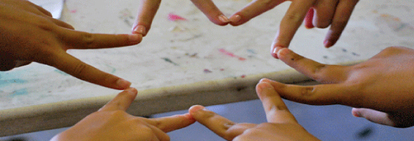
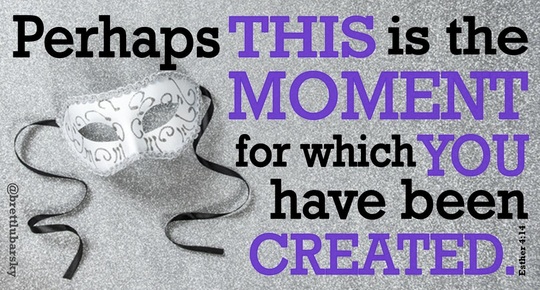

 RSS Feed
RSS Feed